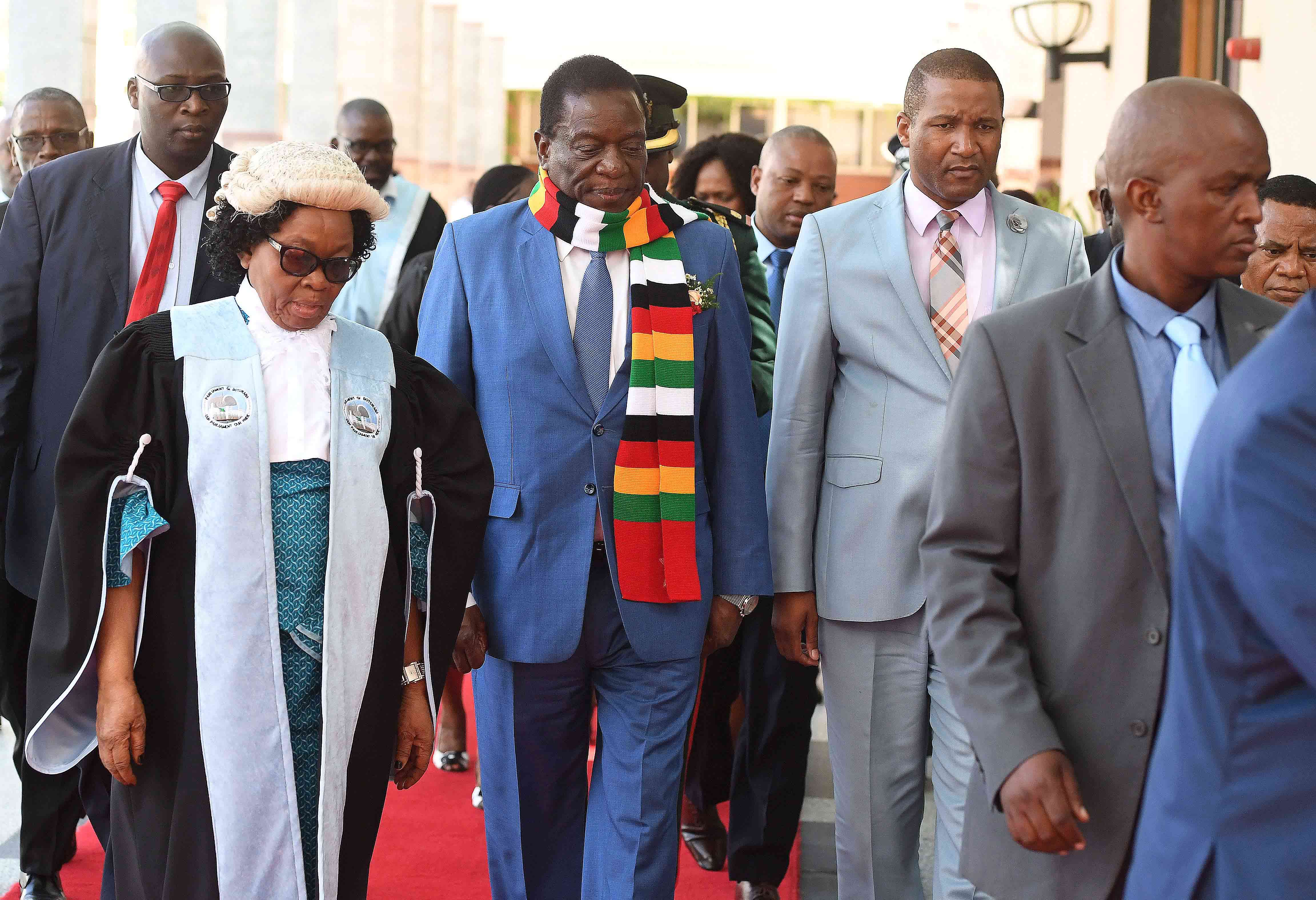- Rubbishes emerging coup allegations
- Says Zimbabwe has partly disabled Internet connectivity
- “Our people often walk for more than 20 kilometers to come to work”
TEFO PHEAGE
Former Commander of the Botswana Defence Force (BDF) and current Botswana Ambassador to Zimbabwe, Louis Matshwenyego Fisher, has bemoaned internet shutdown by the Zimbabwean government saying it “certainly continues to affect and has affected their (Botswana government’s) business and day to day operations.”
The former BDF commander sought to allay the fears of Batswana who have expressed concerns that fellow Batswana living and plying their trade in Zimbabwe will be subjected to acts of violence, by informing the public that Batswana in Zimbabwe are “safe and coping.”
Zimbabweans have taken to the streets to demonstrate against a sharp rise in fuel prices announced by President, Emmerson Mnangagwa who had risen to become a beacon of hope for many after the coup that removed Former President Robert G. Mugabe.
Zimbabwean human rights groups claim that at least 12 people have been killed, at least 78 have been shot and more than 240 have faced “assault, torture, inhumane and degrading treatment” in a crackdown on protests that began on Monday over a dramatic rise in fuel prices.
Fisher informed The Botswana Gazette in an interview this week that the fuel situation has immobilized the country, “it is such a big challenge that has affected almost everybody-rich and poor, it has affected livelihoods and day to day operations. Our employees often walk for more than 20 kilometers to access our offices,” he revealed.
Fisher, a former army commander said they are alive to risks but considered themselves (Batswana) safe, furthermore refuting allegations of a looming coup, “we are safe and keeping safe. People are talking of a coup, I don’t see one here. It is just a crisis that needs to be dealt with and foiled quickly,” he claimed.
Fisher however admitted that there has been a serious challenge with internet access and services following what appeared to be a crackdown on protesters. “Econet has sent us messages saying it was ordered to block access for its subscribers. This has affected Facebook, WhatsApp and Twitter. Internet for general stuff was recently opened as it was affecting commerce,” he disclosed.
“It is a struggle but we coping as we expect the situation to normalise very soon,” he assured the nation.
The Zimbabwe Human Rights NGO Forum in a statement asserts that 466 people have been arbitrarily arrested or detained in what it calls “massive” violations.
The statement says children as young as 9 have been reportedly tortured as security forces break into private homes.
President Emmerson Mnangagwa justified the rise in fuel prices as it was aimed at tackling shortages caused by an increase in fuel use and “rampant” illegal trading.
Protesting Zimbabweans however claim Mnangagwa is failing to live up to his promises to revive the economy, currently experiencing record high inflation in contrast to stagnated wages. The country faces a severe shortage of cash in US dollars and confidence in its bond notes, a currency that can only be traded in Zimbabwe, is low.
The bond notes were to have retained worth on par with the US dollar but have lost value because of a lack of foreign currency backing the note, and are now worth much less than a dollar, according to experts in the field.
The fuel hike means petrol prices rose from $1.24 (Pula 13.06) a litre to $3.31 (Pula 34.86), with diesel up from $1.36 a litre to $3.11. The new prices place Zimbabwe as having the most expensive fuel in the world, according to GlobalPetrolPrices.com.
Masisi’s government has adopted a wait-and-see attitude to the unfolding situation in Zimbabwe in contrast to what had become a common theme under his predecessor’s regime.
Under the leadership of former president Ian Khama, the Government of Botswana had been quick to react and condemn the Zimbabwean Government on governance issues.

